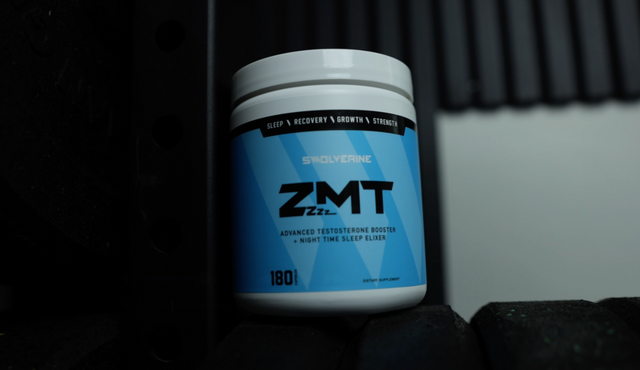Are you ready to unlock the secret to optimal health and well-being? Dive into the ultimate guide on hormone optimization, focusing on the powerful impact of DHEA when taken at night. Imagine a scenario where you could enhance your health simply by adjusting the timing of your supplement intake. Intriguing, right?
In this comprehensive guide, we delve into the science behind optimizing your hormones and how a strategic approach to DHEA supplementation at night could potentially revolutionize your health journey. By shedding light on this lesser-known yet impactful practice, we aim to equip you with the knowledge and tools necessary to elevate your overall well-being.
Join us on a journey to discover the untapped potential of DHEA and learn why incorporating this nighttime ritual could be your key to unlocking a healthier, more vibrant life. It’s time to take charge of your health from dusk till dawn.
Here’s your revised content with Header 1, Subheader 2, improved formatting for readability, and optimized for SEO and clarity. I've also added relevant scientific citations with author and publication links to strengthen credibility:
Understanding Hormone Optimization
Why Hormone Optimization Matters
Hormone optimization is a crucial aspect of maintaining overall health and wellness. Hormones act as chemical messengers in the body, regulating a multitude of physiological processes including metabolism, immune function, mood, and reproduction. When hormones are in balance, your body functions optimally. However, various factors—such as chronic stress, dietary habits, aging, and exposure to environmental toxins—can disrupt this delicate equilibrium, leading to a host of health complications.
Understanding how to optimize your hormones is essential for promoting longevity, energy production, and mental clarity. It can be the key to achieving a healthier, more vibrant life.
The Goal of Hormone Optimization
The primary objective of hormone optimization is to ensure that hormone levels remain within a functional and healthy range—not too high, and not too low. This homeostasis is essential for:
-
Sustaining energy levels
-
Maintaining a healthy weight
-
Enhancing emotional well-being
-
Improving cognitive performance
As hormone therapies and supplements grow in popularity, many individuals are turning toward natural and evidence-based strategies to restore hormonal balance. One such strategy involves the timing of hormone supplementation, particularly with DHEA (dehydroepiandrosterone).
Emerging research underscores that hormone production in the body follows a circadian rhythm, meaning hormone levels fluctuate throughout the day (Touitou et al., Clinical Therapeutics, 1993). Aligning supplementation with these rhythms may enhance effectiveness, reduce side effects, and promote better health outcomes.
Importance of Hormone Balance
The Role of Hormones in Health
Hormone balance is pivotal to fostering both physical health and emotional stability. When hormones are properly regulated, your body can support healthy development, metabolic efficiency, and overall function.
Disruptions in hormone levels can contribute to issues such as:
-
Fatigue
-
Anxiety or depression
-
Unexplained weight gain
-
Reduced libido
In today's fast-paced world, where chronic stress and poor lifestyle habits are common, understanding the importance of hormone balance is more critical than ever.
For example, cortisol, the body’s primary stress hormone, can become elevated due to persistent stress. Chronically high cortisol levels are associated with increased appetite, fat accumulation (particularly visceral fat), and sleep disturbances (Sapolsky et al., Endocrine Reviews, 2000). On the other hand, key hormones like testosterone and estrogen naturally decline with age, leading to reduced muscle mass, libido, and mental focus.
Managing Deficiencies and Excesses
Hormone optimization isn’t just about addressing deficiencies—it’s also about managing excesses. For instance, elevated insulin can lead to insulin resistance and type 2 diabetes, while excessive thyroid hormone levels can cause hyperthyroidism, leading to anxiety and rapid weight loss.
This comprehensive approach—addressing both underactive and overactive hormonal states—is key to a functional and personalized health strategy.
Among various therapeutic approaches, DHEA supplementation stands out as a potentially effective tool for improving hormonal balance, especially in aging individuals.
What is DHEA and Its Role in Hormone Regulation
DHEA as a Precursor Hormone
Dehydroepiandrosterone (DHEA) is a steroid hormone produced primarily by the adrenal glands. It serves as a precursor to major sex hormones such as testosterone and estrogen, playing a vital role in maintaining hormonal homeostasis.
DHEA levels peak in early adulthood and naturally decline with age, often contributing to signs of hormonal imbalance. This decline has been linked to symptoms such as:
-
Fatigue
-
Mood disturbances
-
Decreased libido
-
Weakened immune function
Research has demonstrated that DHEA plays a crucial role in metabolism, cognitive function, and immune regulation (Morales et al., The Journal of Clinical Endocrinology & Metabolism, 1994).
Benefits and Strategic Timing of Supplementation
Supplementing with DHEA may help restore hormonal levels and support overall vitality in older adults or those with adrenal insufficiency. However, its effectiveness heavily depends on timing and dosage.
Since natural DHEA production follows a diurnal rhythm—highest in the early morning and tapering off throughout the day—strategically taking it in the morning may better align with the body's internal clock and promote improved outcomes (Wang et al., Clinical Endocrinology, 2000).
The Benefits of Taking DHEA at Night
Aligning Supplementation With Circadian Rhythms
Taking DHEA at night may enhance its effectiveness by aligning with the body’s natural circadian rhythm—the internal clock that regulates sleep, hormone release, and other vital functions. During nighttime, the body enters a restorative phase, making it an ideal time for hormonal repair and regulation. Studies suggest that DHEA administered in the evening may improve sleep quality, enhance recovery, and support healthier overall hormone levels (Allolio et al., Journal of Clinical Endocrinology & Metabolism, 1997).
Since sleep plays a critical role in hormone production, nighttime supplementation can amplify the benefits of DHEA by creating a synergistic effect—enhancing sleep quality while simultaneously restoring hormone balance.
Stabilizing Hormone Levels Overnight
Supplementing with DHEA at night may help minimize daytime hormonal fluctuations, particularly in those dealing with adrenal fatigue, mood instability, or low libido. This strategic timing may provide a more stable hormonal environment overnight, leading to more consistent energy levels and mental clarity upon waking.
DHEA has also been studied for its effects on mood and cognition, especially in populations with low baseline hormone levels (Schmidt et al., Archives of General Psychiatry, 2005).
Supporting Cortisol Regulation and Sleep
Evening DHEA supplementation may also support healthy cortisol regulation. Cortisol levels that remain elevated into the night can impair sleep and increase stress. DHEA may help reduce nighttime cortisol, improving sleep onset and quality (Kroboth et al., Clinical Pharmacokinetics, 1999). Lower cortisol at night means less nighttime arousal, deeper sleep, and improved hormonal harmony.
Factors That Affect Hormone Production
Age-Related Hormone Decline
Hormone production—particularly DHEA—declines naturally with age, often starting in the late 20s and continuing through adulthood. This drop in DHEA levels is linked to fatigue, muscle loss, weight gain, and decreased libido (Labrie et al., Aging Cell, 2005).
As hormone levels diminish, individuals may experience symptoms that affect quality of life, making it essential to track hormonal health and consider strategic interventions like supplementation and lifestyle changes.
Lifestyle and Dietary Factors
Lifestyle has a profound effect on hormone regulation. Poor dietary habits—especially high-sugar or processed food intake—can disrupt insulin and sex hormone balance. In contrast, a diet rich in whole foods, lean proteins, and healthy fats supports stable hormone levels.
-
Exercise: Enhances testosterone and DHEA levels
-
Sleep: Critical for growth hormone and melatonin production
-
Stress management: Reduces cortisol and supports adrenal health
Chronic Stress and Hormonal Disruption
Chronic stress is a well-documented disruptor of hormone function. Persistent activation of the HPA axis (hypothalamic-pituitary-adrenal) can suppress DHEA and testosterone levels, increasing the risk of fatigue, poor mood, and immune dysfunction (McEwen, Annals of the New York Academy of Sciences, 1998).
Incorporating mindfulness, breathwork, meditation, or light movement can mitigate these effects and support long-term hormonal balance.
Lifestyle Changes to Support Hormone Optimization
Nutritional Foundations
A hormone-supportive diet begins with nutrient-dense, whole foods that provide the essential building blocks for hormone synthesis:
-
Healthy fats: Avocados, olive oil, fatty fish
-
High-quality protein: Supports muscle and metabolism
-
Micronutrients: Zinc, magnesium, B vitamins, and vitamin D
These nutrients are crucial for the production of hormones like testosterone, DHEA, and thyroid hormones.
Exercise for Hormonal Health
Physical activity not only reduces cortisol but also stimulates the release of anabolic hormones such as testosterone, growth hormone, and DHEA. Resistance training, in particular, has been shown to significantly increase serum DHEA levels (Koziris et al., Journal of Strength and Conditioning Research, 1999).
A well-rounded exercise plan should include:
-
Strength training
-
Cardiovascular conditioning
-
Mobility and flexibility work
The Importance of Sleep Hygiene
Sleep is the body's primary time for hormonal reset. Poor sleep quality leads to elevated cortisol and reduced testosterone and DHEA production. Improve sleep by:
-
Keeping a regular bedtime
-
Reducing screen time before bed
-
Creating a cool, dark sleeping environment
These small adjustments can greatly enhance hormone regulation and maximize the effectiveness of DHEA supplementation.
Dosage and Timing Recommendations for DHEA
Finding the Right Dosage
DHEA dosing should be individualized based on lab results, health goals, and medical supervision. A typical starting dose is 25 mg per day, with gradual adjustments depending on how the body responds. Dosage ranges can vary from 5 mg to 100 mg, but most individuals benefit from low to moderate doses (Kritz-Silverstein et al., Menopause, 2008).
When to Take DHEA
Timing impacts DHEA’s effectiveness:
-
Evening dosing may support sleep and cortisol regulation
-
Morning dosing may be better for those seeking daytime energy boosts
It’s recommended to test and track hormone levels before and during supplementation to find the most effective schedule.
Potential Side Effects of DHEA Supplementation
Mild to Moderate Reactions
Some individuals may experience androgenic side effects, especially at higher doses:
-
Acne
-
Hair loss or increased body hair
-
Mood fluctuations or irritability
These side effects often indicate that the dosage may need to be adjusted or the supplement discontinued temporarily.
Hormonal Imbalance Risks
In rare cases, excessive supplementation can lead to imbalances such as:
-
Polycystic ovary syndrome (PCOS) in women
-
Prostate enlargement or risk in men
Therefore, working closely with a qualified healthcare provider and performing regular lab testing is key to safe and effective use.
Special Considerations
Individuals with hormone-sensitive conditions, such as breast, ovarian, or prostate cancer, should avoid DHEA unless under strict medical supervision.
Other Strategies for Hormonal Optimization
Adaptogenic Herbs
Adaptogens like ashwagandha, rhodiola, and holy basil help regulate the stress response and support cortisol balance. These herbs have been shown to:
-
Reduce fatigue
-
Improve mood
-
Enhance cognitive performance
(Panossian et al., Phytomedicine, 2010)
Gut Health and Hormone Regulation
The gut microbiome influences hormonal pathways including estrogen metabolism and insulin sensitivity. Improve gut health by consuming:
-
Probiotic-rich foods: Yogurt, kefir, sauerkraut
-
Prebiotics: Fiber-rich vegetables, bananas, oats
A healthy gut environment translates to better hormone clearance, lower inflammation, and improved nutrient absorption.
Hydration and Hormonal Function
Water is essential for metabolism, detoxification, and hormone transport. Inadequate hydration can slow down the production and movement of key hormones. Aim for at least 8–10 cups of water daily, or more with exercise.
DHEA supplementation—especially when taken at night—can play a powerful role in optimizing hormonal health. However, it should be used as part of a comprehensive strategy that includes proper nutrition, exercise, stress reduction, and medical guidance. When paired with these lifestyle choices, DHEA becomes a synergistic tool in supporting energy, sleep, cognitive clarity, and long-term wellness.
Would you like this turned into a downloadable PDF, infographic, or blog post format for your site or email list?
Conclusion: Should You Take DHEA At Night?
Optimizing hormones is a multifaceted approach to achieving better health and well-being. By understanding the importance of hormone balance and the role of DHEA, individuals can take proactive steps to enhance their health. Taking DHEA at night aligns with the body’s natural rhythms, potentially offering significant benefits such as improved sleep quality, stabilized hormone levels, and increased energy.
Implementing lifestyle changes, including a balanced diet, regular exercise, and stress management, can further support hormone optimization. Monitoring hormone levels and working with healthcare professionals can help tailor supplementation and lifestyle strategies to individual needs.
As the journey to better health unfolds, it’s essential to recognize that optimizing hormones is not a one-size-fits-all approach. By being informed and engaged in your health journey, you can unlock the potential of DHEA and other strategies, paving the way for a healthier, more vibrant life. Embrace the power of hormone optimization and take charge of your health from dusk till dawn.







